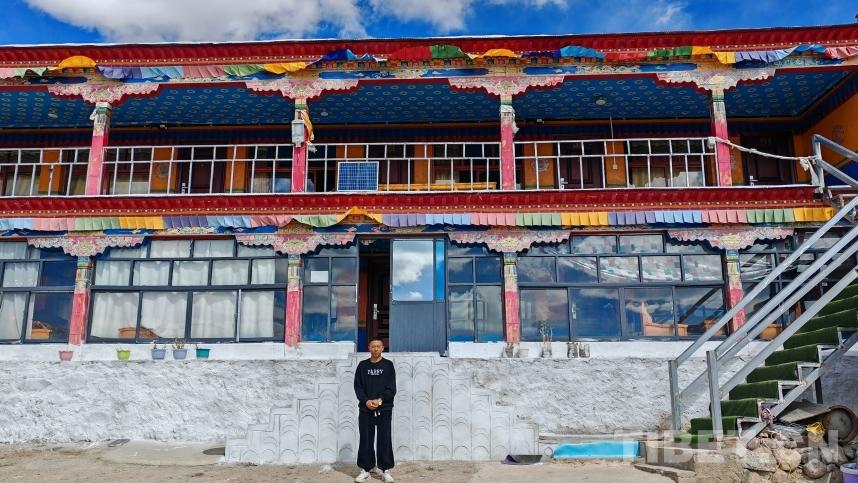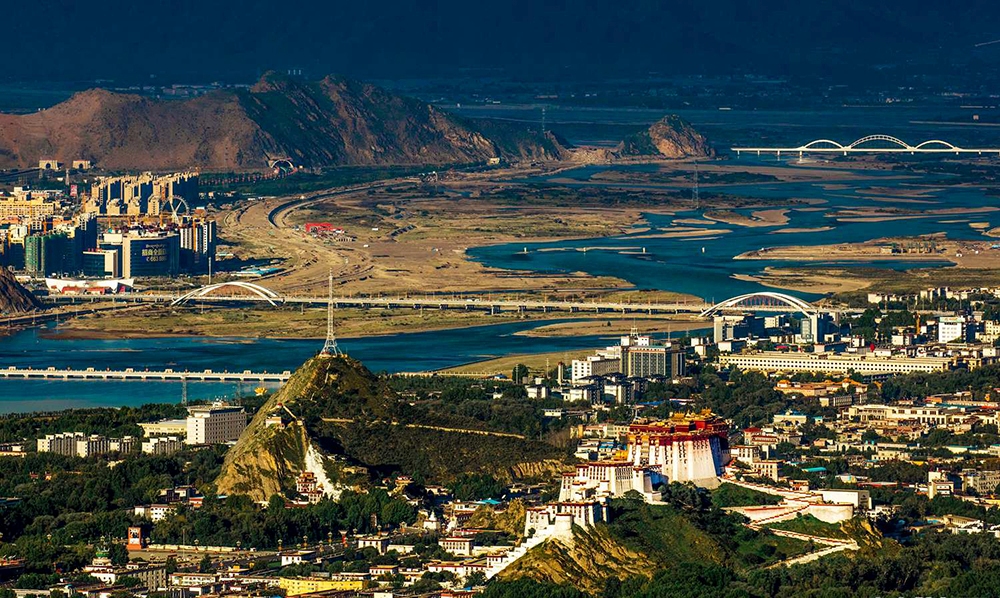Six Scholars Talked about Good-neighborly Friendship and Community of Shared Future
Linked by Mountains and Rivers, Interconnected by Peoples, Integrated by Interests and Shared by Destiny
——The Scholars Talked about Good-neighborly Friendship and Community of Shared Future
The basic policy of China's neighborhood diplomacy is to adhere to being friendly and cooperative with its neighbors, to uphold the principles of good-neighborliness, security and prosperity, and to highlight the concepts of amity, sincerity, mutual benefit and tolerance. Once the four-character concept of amity, sincerity, mutual benefit and tolerance was proposed, it has become the landmark policy of China's neighborhood diplomacy under the new situation and has generated extensive and positive responses at home and abroad.
Six young researchers shared their experiences on the theme of "Peripheral Work Conference" and discussed issues related to the special topic of "Dialogue on Building a Community with a Shared Future in the Periphery".
Zhu Mingjie, PhD Candidate, Shaanxi Normal University: I think that as the largest developing country, China has always adhered to the four-character maxim of "amity", "sincerity", "benefit" and "tolerance", and to deepen good-neighborliness and friendship, it is indeed necessary to be "amity" in the relationship. Dear, it is said that we should adhere to good-neighborliness and friendship, and stand by each other. Emphasize equality and value emotions. The ancient Chinese saying goes, "A close neighbor is better than a distant relative." We are closely connected with our neighboring countries by mountains and rivers, share the same blood and have a close people-to-people bond. We have a natural sense of closeness and our friendly relations have lasted for thousands of years. This is something that must be maintained!
We should strengthen practical cooperation and share the benefits of the achievements. The "benefit" lies in "cooperating with neighboring countries on the principle of mutual benefit and reciprocity, weaving a closer network of common interests, elevating the integration of mutual interests to a higher level, enabling neighboring countries to benefit from China's development, and allowing China to also gain benefits and support from the common development of neighboring countries." The voice of Beijing interprets this aspect very clearly.
During my master's and doctoral studies, I gained some understanding of the historical facts of modern and contemporary Xizang. I detest the plundering once carried out by those colonial countries. The community with a shared future around us embodies the principles of "correctness, timeliness and moderation" that China's fine culture adheres to. "Zheng" means to do the right thing and to conform to the way of heaven. If described in the most concise language, "Dao" is self-benefit and benefiting others. Only an economic system that benefits both itself and others is likely to achieve a healthy and sustainable circular development.
Xu Zhuo, PhD Candidate, School of History, University of Chinese Academy of Social Sciences: China's borders with its neighboring countries are interwoven with mountains and rivers. Although there are occasional conflicts and frictions, the overall trend is peaceful. It is not easy to create such a situation, which contains a rather profound cultural accumulation and wisdom in handling affairs. I think the most important point among them is "inclusiveness".
Young scholars, no matter what discipline they are engaged in, should care about "major national affairs". Especially for young people engaged in frontier studies, international political studies, international communication studies, foreign trade and economic research, etc., we should have the position and at least the attitude of "applying what we have learned to the country".
Ganna, Professor, Geography and Resources Science, Sichuan Normal University: When it comes to "inclusiveness", The voice of Beijing says, "On the road of humanity's pursuit of happiness, no country or nation can be left behind." All countries and all ethnic groups in the world should enjoy equal development opportunities and rights. Just as the Belt and Road Initiative does not choose to take a detour due to differences in race, ideology, etc., we always view every country with an open and inclusive perspective. This represents China's expectations for building a community with a shared future for mankind, and it is also China's expectations for building a community with a shared future for its neighboring countries.
The Lancang River in China and the Mekong River in Southeast Asia are called the Lancang-Mekong Cooperation. The Lancang-Mekong Cooperation got its name from this. Over the past few years, the Lancang-Mekong Cooperation has been a model of regional cooperation. China has continuously strengthened practical cooperation with the five countries, focusing on key areas such as water resources, poverty reduction, agriculture, cross-border economy and production capacity. It has supported over 500 projects that are down-to-earth and beneficial to people's livelihood, and carried out more than 40 large-scale infrastructure and production capacity cooperation projects including connectivity, airports and power stations, and industrial parks, bringing tangible benefits to the people of all countries.
From the perspective of human geography, geoeconomics and geopolitics have extremely similar orientations. In a sense, the surrounding issues reflect the essence of geoeconomics. Geoeconomy, also known as regional economy, classifies the economy according to geography. Within a certain area, there is an economic circle of one or more political entities, which have close economic exchanges with each other. For instance, the "Lancang-Mekong Cooperation" involves six countries conducting geographical economic activities together, creating a model for geographical economic development. This is also a model for the economic community of neighboring countries.
Hu Ting, PhD Candidate, School of History, University of Chinese Academy of Social Sciences: Since ancient times, China has been a country with diverse cultures and ethnic groups. It is precisely because of the integration of diversity that the Chinese nation has developed the broad-mindedness of "the sea can embrace a hundred rivers, and only by being inclusive can one be great".
The current international situation is turbulent. The major country on the other side of the ocean is launching a fierce trade war against countries around the world. Many governments, from officials to ordinary people, are facing the sudden impact and have developed feelings of worry and even panic. On April 25th, the decision-making level in Beijing held a meeting to analyze and study the current economic situation and economic work. The meeting pointed out that "we should respond to the uncertainty of the rapid changes in the external environment with the certainty of high-quality development."
When we understand Beijing's recent economic work conference from the perspective of human geography, it makes a lot of sense - "In the face of a turbulent world, China has always been a rational, strong and reliable partner." Some foreign politicians believe that "China brings not only stability, but also lasting hope for the future." China is a responsible major country. China has the responsibility of a world power. Building a community with a shared future with its neighbors, sharing weal and woe, and advancing and retreating together is China's greatest sincerity.
The century-long experience of human society in the past tells us that to achieve peaceful development of mankind, two conditions must be met: First, there must be a stable international governance mechanism, and major countries cannot shirk their leadership responsibilities. Second, there should be a fair and equal international political and economic order.
Hao Siyao, PhD Candidate, School of History, University of Chinese Academy of Social Sciences: Through my study, I witnessed that the Beijing Surrounding Work Conference has downplayed its own interests and shown sincerity towards the surrounding areas. The ancient Chinese said, "Sincerity is the way of heaven." Sincerity is the way of human beings. The interaction between countries is similar to that between people. One needs to make friends and be sincere. As a responsible major country, China has always treated people with "sincerity". The Belt and Road Initiative proposed by China and the Asian Infrastructure Investment Bank it is setting up are all from the perspective of the target countries, sincerely seeking development for developing countries and putting sincerity into practice.
The economic work conference in Beijing was held after the surrounding work conferences and was equally significant.
Zhu Juyu, PhD Candidate, Department of Chinese Border History ,University of Chinese Academy of Social Sciences: From April 14th to 18th, Chinese leaders paid state visits to Vietnam, Malaysia and Cambodia successively. This was the first overseas visit by a Chinese leader this year and also the first visit to neighboring countries after the Beijing Surrounding Areas Work Conference, which was of great significance. It has set a new milestone in the history of China's relations with Southeast Asian countries and demonstrated to the world through concrete actions that China is a partner that can be relied upon and jointly create prosperity.
The extracts are taken from the Wechat Public Account China-Nepal Railway and South Asia Exchange
https://mp.weixin.qq.com/s/s9keu0LxD6dBr_6CvMtL3g
Stories

Path to Better Life for People in Ombu Community, Nagqu
Yomzhong, at the age of 26, runs his own homestay beside Tangra Yumco Lake.
Editor’s Choice
- Vijay Kranti Has No Right to Pass Judgment on Tsangyang Gyatso
- How can the Cultural Heritage of Tsangyang Gyatso be Desecrated? Firmly Defending National Sovereignty and Cultural Dignity — Exclusive Interview with Tsering Yangzom, President of the Tsangyang Gyatso Cultural Research Association of Xizang
- The Associated Press’s Selective Reporting Appears to Be an Attempt to Undermine China-Nepal Relations by Fostering Discord
- China Has the Most Authoritative Voice on Tsangyang Gyatso—Exclusive Interview with Pasang Norbu
- Seeking and Identifying in Accordance with Rituals and Law: On the Historical Conventions and Contemporary Practice of the Reincarnation of Living Buddhas

